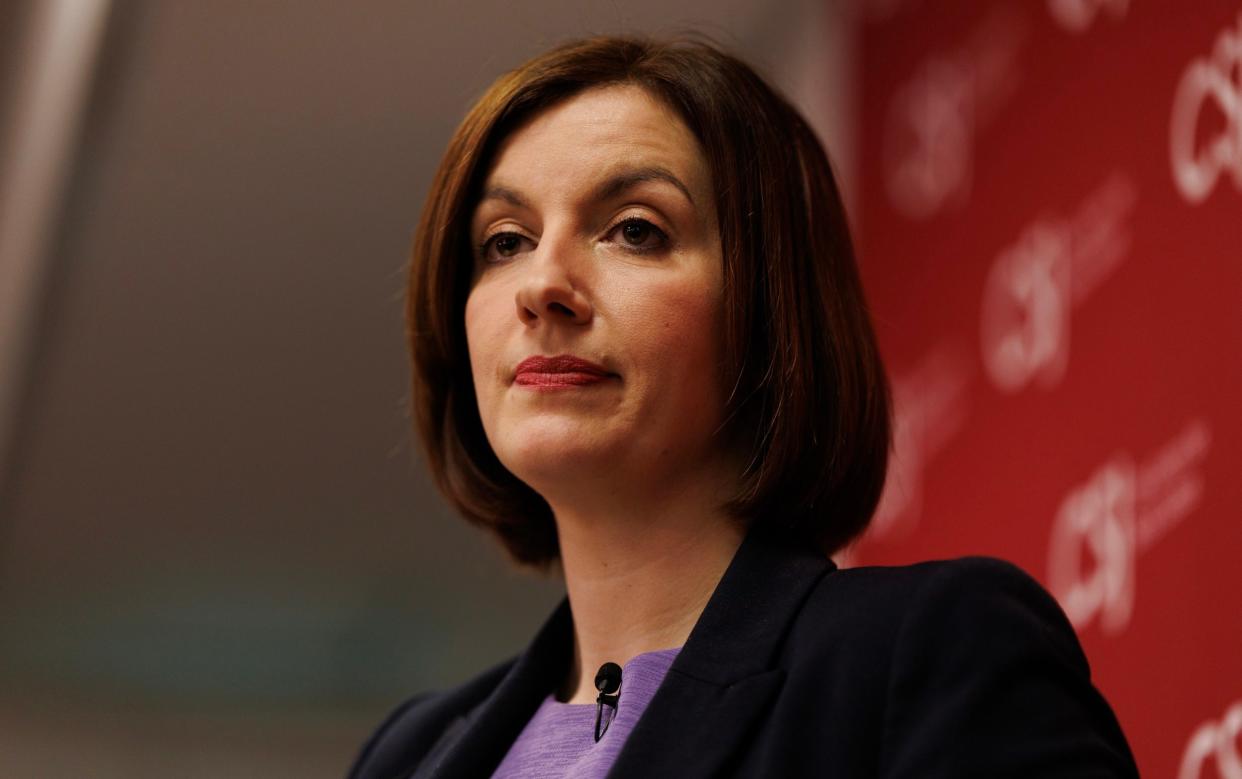Labour plan to help boys call out ‘scourge’ of misogyny in classrooms

- Oops!Something went wrong.Please try again later.
Schoolboys will coach younger male pupils on how to call out a “scourge” of misogyny in classrooms, under plans drawn up by Labour.
Older boys will be given mentor training by Department for Education officials before they begin coaching younger pupils if Labour wins the next election, according to the proposals.
Bridget Phillipson, the shadow education secretary, has pledged to introduce the training as part of a plan to tackle a post-pandemic rise in sexual harassment in classrooms.
Announcing the plans, she blamed the rise on social media content from influencers such as Andrew Tate, the self-described “king of toxic masculinity”.
She said: “Misogyny is a growing scourge in our classrooms and if we fail to tackle it now, we store up huge problems for society in years to come.
‘Right to a safe space’
“Female pupils and teachers deserve the right to a safe space, but it is evident that content from influencers such as Andrew Tate is having a lasting and damaging impact on boys and young men.”
Tate, who was banned from Instagram and Facebook last year, used social media to share his views with male fans, including comparing women to dogs and claiming that women are the property of their husbands.
It is understood that Labour would aim for the programme to reach more than 1.1 million teenagers across 1,000 schools over four years of a parliament.
Labour has previously said it would put lessons on treating women and girls with respect on to the school curriculum as part of a pledge to halve violence against women. It has also pledged to give Ofsted the power to conduct annual safeguarding checks to identify harmful behaviour.
All pupils would be given lessons in how to deal with online hate and misinformation under the proposals.
‘Misogynistic material online’
Meanwhile, schools would be encouraged to work together to spread “best practice” in dealing with misogyny and sexual harassment.
It comes as analysis of Ofsted reports found that mentions of the terms “sexism”, “misogyny”, “sexual harassment”, “sexual abuse” and “safeguarding incident” rose by more than 400 per cent, from 39 to 199, between 2019 and 2022.
Research published by Vodafone earlier this month found that 70 per cent of teachers have seen a rise in sexist language in the classroom over the past year, while 69 per cent of boys have encountered posts promoting misogyny.
The study included a survey, carried out by Opinium, of 1,000 parents and boys aged between 11 and 14, as well as a poll of more than 4,000 secondary school teachers.
Margaret Mulholland, inclusion specialist at the Association of School and College Leaders union, said: “The rise in the amount of misogynistic material online, and the impact this can have on young people, is absolutely horrifying and of serious concern to school and college leaders.
‘Algorithms amplify harmful content’
“Social media can and does have a huge influence on pupils, and it is clear that the algorithms which drive the selection of personalised content on these platforms are responsible for amplifying harmful content.”
She added: “It’s important that young people, particularly boys, are involved in the conversation to combat this problem and feel empowered to make good decisions and form healthy relationships. However, support from politicians and external agencies is also welcome, as schools cannot fight this battle alone, and we are pleased to see Labour devote attention to this important issue.”
Dr Patrick Roach, general secretary of the teaching union NASUWT, said: “We know from reports from members, our casework and previous research that sexual harassment and sexist abuse towards both female teachers and pupils in schools and colleges is commonplace and that the majority of incidents fail to be reported or dealt with effectively.
“We welcome the commitment to tackling the many forms of misogyny and supporting effective practice in schools. This must also include equipping schools to confront sexism and misogyny in the curriculum.”

